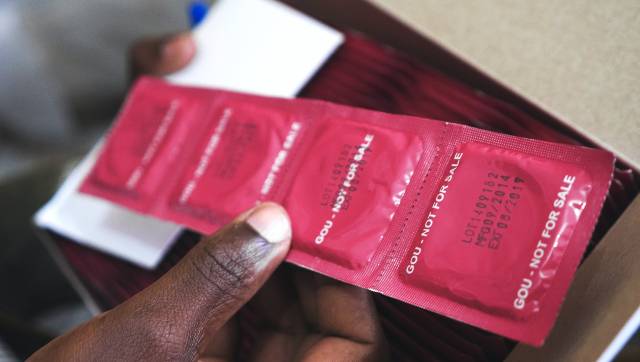If you’re a millennial, you’d have been familiar with just LGBT while growing up. But the fact that it’s now LGBTQIA or LGBTQ+ indicates that identifying or discovering your sexuality is an evolving process. Everyone’s sexual journey is unique — some know what they want from the very beginning and some make discoveries about themselves much later in life. There is no correct way to go about this. Exploring your sexuality is, very important, but so is being aware of safe sex practices. And that’s where safe sex education needs to step in and provide guidance to people of all sexualities, and not just those who adhere to gender binaries. [caption id=“attachment_8531431” align=“alignnone” width=“640”] Representational image. Unpslash/Reproductive Health Supplies Coalition[/caption] The stigma attached to the LGBTQ+ community, and sex in general, in India and most other countries, makes it more difficult to spread awareness about safe sex practices. However, given the risk of diseases like sexually transmitted infections (STIs), human immunodeficiency virus (HIV) and acquired immunodeficiency syndrome (AIDS), staying informed about safe sex practices is very important. Here are some practices you can follow: 1. Communicate Communication before, during and after sex isn’t just about consent. For people in the LGBTQ+ community, this has a lot to do about finding out their sexual identity and attractions. Remember that creating a safe space between partners is very important here. Discussing sexual history, STI status, likes and dislikes, and general health is vital. 2. Get consent Getting consent before every act and discussing everything you want to explore beforehand is very important. Consent isn’t just about a simple yes or no, and it’s important to remember that a lack of no doesn’t automatically mean yes. Wait for enthusiastic consent and ignore anyone who says talking about consent isn’t sexy or ruins the mood. 3. Use safe sex barriers External condoms (also known as male condoms) and internal condoms (also known as female condoms) aren’t the only type of protection you should use, although those are always a must. Dental dams for oral sex, sterile gloves and
lubricants are equally important for safe sex. You may also want to consider letting your doctor know about your sexuality and relationship status so that you can be advised on the most effective protection for you. 4. Get tested You should definitely get an annual check-up and get tested for STIs regularly, especially if you’re active sexually. If you’re in a committed relationship, you might want to discuss getting tested together, because that can ease the stress, reduce the vulnerability and foster trust. Remember, just because you have no symptoms, does not mean you don’t have an STI. If you have had unsafe sex before or are thinking of becoming intimate with a new partner, it’s a good idea to get tested. 5. Sanitise toys Don’t forget to follow basic hygiene principles while involving toys in sexual activities. Ensure that all sex toys like vibrators, dildos and beads are properly sanitised before and after use and avoid sharing them if possible. If there are any accidental injuries, consult a doctor as soon as possible instead of ignoring it or trying to deal with it yourself and making it worse. 6. Destigmatise STIs The stigma attached to STIs is one of the reasons why many people don’t feel comfortable disclosing their medical information. There are many STIs you can safely manage with the right knowledge. People who are HIV positive can have a safe and flourishing sex life as there are medications (PrEP) for their partners to remain uninfected. So while you expect full disclosure from a potential partner about their STI status, remember to not pass any judgements about anything they disclose. Language plays an important role as well — asking one if they’re “clean” does not help anyone living with a disease open up. Instead, simply ask your partner when their last check-up was and if there is something they would like to share. 7. Multiple partners Whether you’re straight, gay or bisexual, it is possible for anyone to be in multiple sexual relationships at a given time. While that’s your personal decision, you have to accept that this counts as risky sexual behaviour and it increases your chances of contracting an STI. Following all precautions therefore is even more important, and you should consult a doctor about what frequency would be best for you to get tested. Be open with all potential partners about other partners you may have as their risk of contracting an STI increases by getting involved with you as well and they should be allowed to make an informed decision. For more information, read our article on
Homosexuality: Modern history, theories, stigma and coming out to your loved ones. Health articles in Firstpost are written by myUpchar.com, India’s first and biggest resource for verified medical information. At myUpchar, researchers and journalists work with doctors to bring you information on all things health.
The stigma attached to the LGBTQ+ community, and sex in general, in India and most other countries, makes it more difficult to spread awareness about safe sex practices
Advertisement
End of Article


)

)
)
)
)
)
)
)
)



